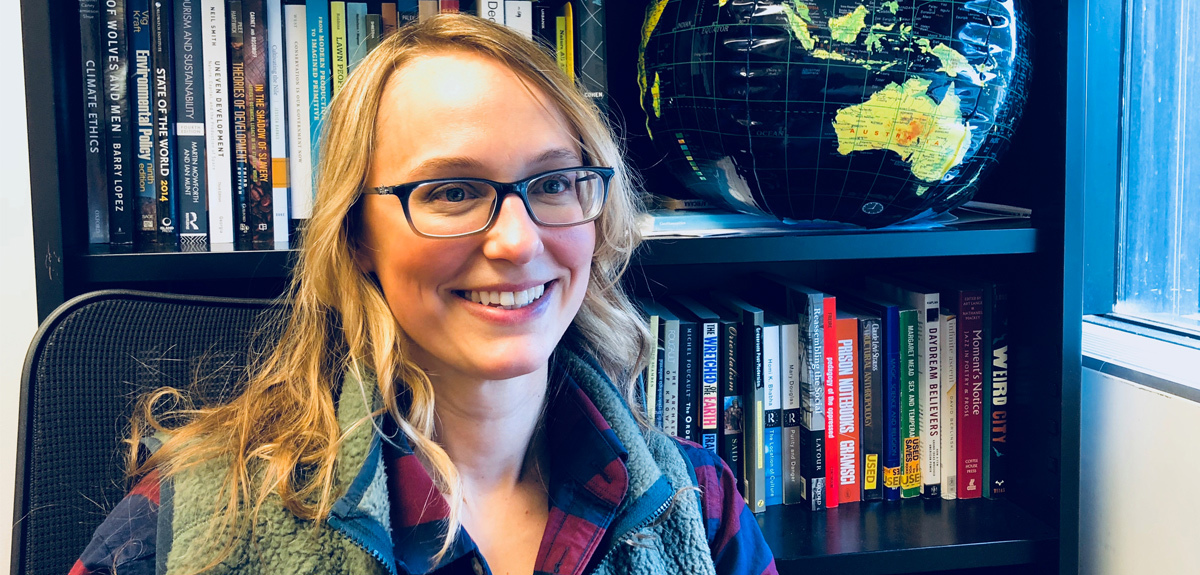Anne-Marie Hanson

Paving a New Path
Anne-Marie Hanson ’03 was inspired by her change in major to anthropology and participation in study abroad courses. “I originally chose Luther because of the music and science programs,” she says.
The unique experiences offered at Luther had a huge impact on Anne-Marie’s career. “I went to the Brazilian Amazon with Dr. Nick Gomersall for an environmental economics course, urban and rural areas in Nepal with Dr. Stanley for an anthropology and development class, and studied abroad in Mexico City at UNAM [National Autonomous University of Mexico] for nine months,” she says. “All of these experiences were life-changing and inspired my current career and research.”
Pursuing New Interests
Anne-Marie is currently an associate professor at the University of Illinois Springfield. “In my current role as an assistant professor of environmental studies, I teach courses in international sustainable development, environmental justice, environmental ethics, environmental sciences, and social sciences,” she says. “I also work with the Gender and Water Alliance and I’m a gender and social science consultant to the UNEP [United Nations Environment Programme] on their initiatives linked to the Clean Seas campaign to keep plastics out of oceans.”
Anne-Marie supplements her work with research that focuses on two environmental topics. “The first links plastic pollution in Illinois rivers to the current global health and environmental crisis of marine plastic debris,” she says. “The second intertwines politics and ecologies of community waste management, nature protection, and gender and climate change in coastal Mexico and the Caribbean.”
What’s funny is that I completely switched my majors because of experiences in my anthropology and study abroad courses.
Anne-Marie Hanson '03
Working in Gender Equality and Sustainability
“In one of Dr. Lori Stanley’s courses, we had a unit on gender and linguistics where we timed faculty speeches at a meeting and surveyed the group afterward to ask who spoke the longest,” Anne-Marie says. “It was telling that both men and women thought female faculty spoke the longest, even though the timer said otherwise!”
Anne-Marie says this activity introduced her to normalized gender biases and cultural expectations for how men and women should behave in different settings. “As a female faculty member, I distinctly remember that assignment,” she says. “I also see its relevance in inspiring my work in feminist political ecology, sustainable development, and environmental justice.”